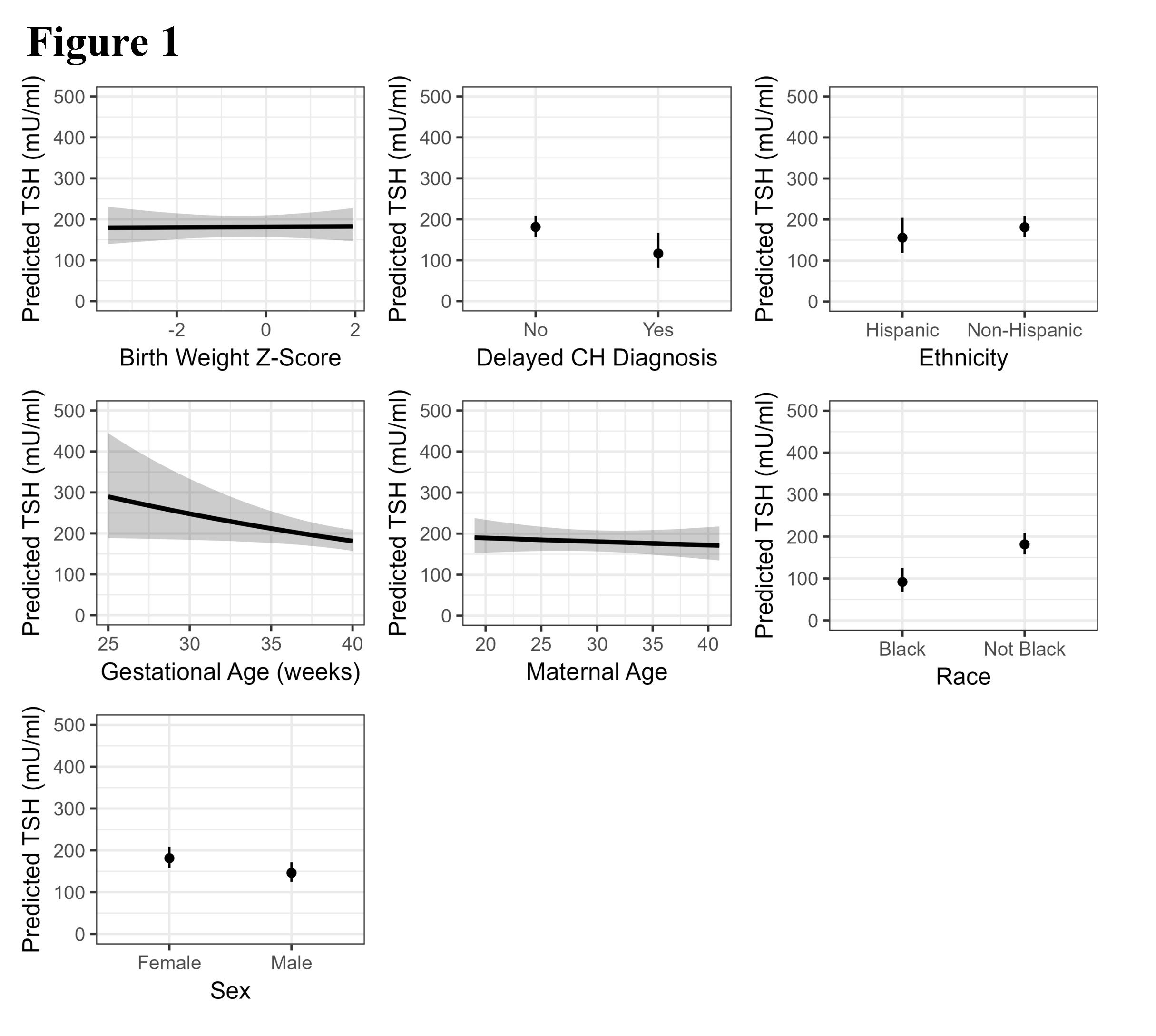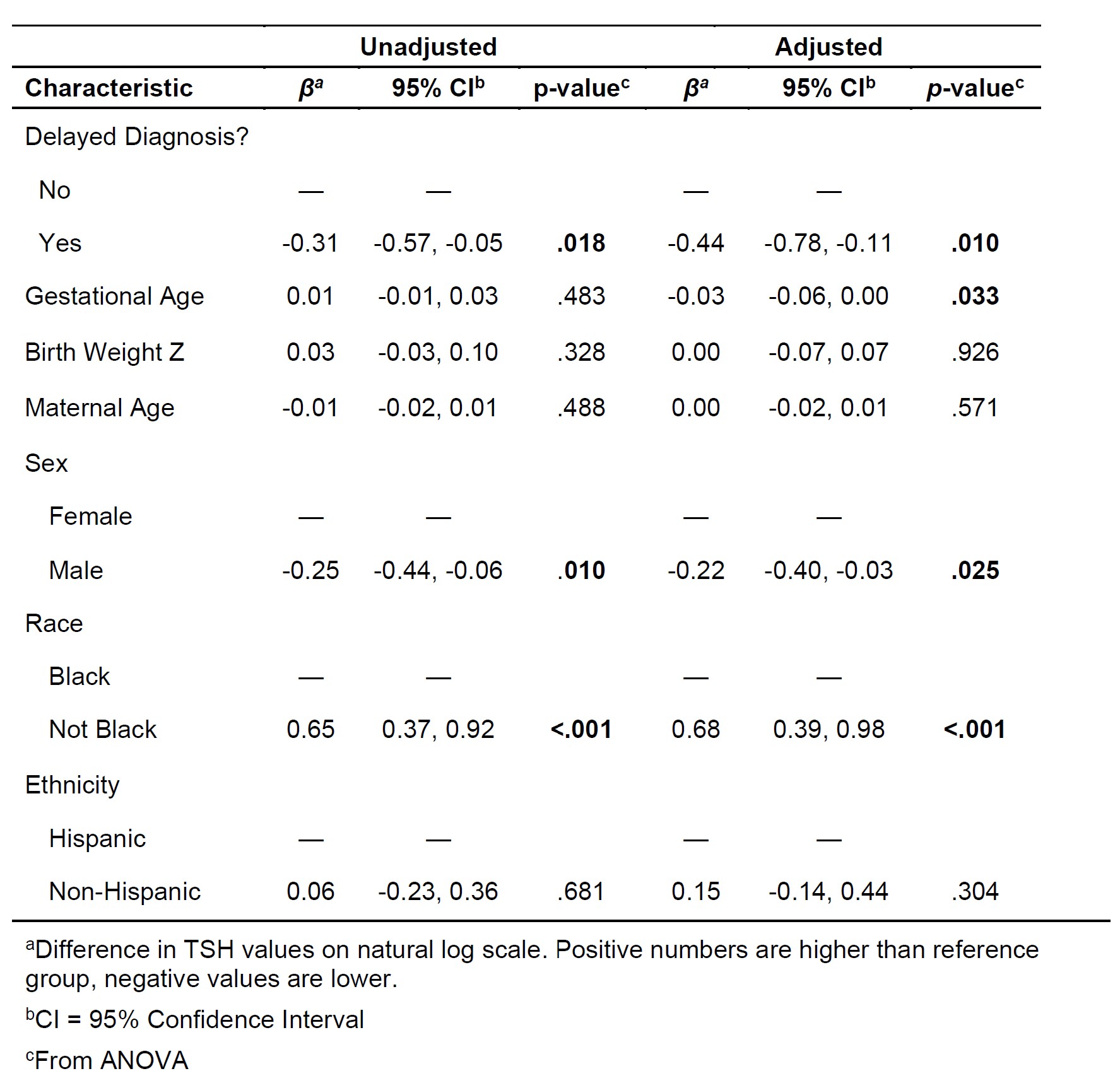Endocrinology 1
Session: Endocrinology 1
297 - Clinical factors and natural history of infants with congenital hypothyroidism who have a delayed TSH rise on the newborn screen
Sunday, April 27, 2025
8:30am - 10:45am HST
Publication Number: 297.4408
Preet K. Matharu, Indiana University School of Medicine, Indianapolis, IN, United States; Louis J. Martin, Indiana University School of Medicine, Indianapolis, IN, United States; Erica A. Eugster, Riley Hospital for Children at Indiana University Health, Indianapolis, IN, United States
- PM
Preet K. Matharu, MD (she/her/hers)
Physician Fellow
Indiana University School of Medicine
Indianapolis, Indiana, United States
Presenting Author(s)
Background: Newborn screening programs identify the vast majority of infants with congenital hypothyroidism (CH) shortly after birth. However, a subset of NICU babies has a delayed rise in thyroid-stimulating hormone (TSH) leading to late identification and initiation of treatment. We previously demonstrated that 16% of infants with CH born in Indiana have a delayed TSH rise. Lower birth weight Z scores and gestational ages are associated with an increased risk of a delayed TSH rise. However, whether other factors confer an increased likelihood of a late diagnosis of CH is unknown.
Objective: To identify additional differences in clinical factors between infants with CH who have a delayed TSH rise and those who are detected early, and to characterize the natural history of the delayed cohort.
Design/Methods: All cases of CH diagnosed between 2012-2022 were reviewed. Infants with a delayed TSH rise had an initial normal newborn screen (NBS) followed by an abnormal NBS, and a confirmatory serum TSH value >20 mU/mL. Linear regression was used to assess the relationship between TSH values and timing of diagnosis. A retrospective chart review was performed to identify clinical characteristics and investigate the follow-up course of the delayed cohort.
Results: Seventy-three out of 525 infants had a delayed diagnosis of CH. Confirmatory serum TSH values were lower in infants with a delayed diagnosis compared with those detected early (p=0.010, Figure 1, Table 1). Complete medical records were available for 50 infants with a delayed TSH rise. The average NICU stay in this group was 86 days (range 6-254, median 74). The most common complications involved abnormalities of the hematologic (68%), respiratory (59%), and cardiovascular (48%) systems. Of infants with genetic conditions (N=12), 75% had Trisomy 21. Fifty-nine percent of infants had developmental delay. A trial off levothyroxine was successful in 45% of the 31 infants given a challenge.
Conclusion(s): Our results suggest that developmental delay is common in infants with a late diagnosis of CH. However, it is unclear to what degree this is due to the delayed TSH rise given the multiple risk factors also seen with prematurity. Nearly half of infants trialed off medication had transient CH, suggesting that post-natal factors likely play a major role in a delayed TSH rise. More studies are needed to further identify risk factors for a late detection of CH in order to expedite treatment and optimize outcomes.
Figure 1
 Partial effects plots for regression predicting TSH concentration. Each plot shows the predicted TSH values for a variable while all other variables in the model are held at their median (for continuous variables) or mode (for categorical variables).
Partial effects plots for regression predicting TSH concentration. Each plot shows the predicted TSH values for a variable while all other variables in the model are held at their median (for continuous variables) or mode (for categorical variables). Table 1
 Linear regression results: variables predicting the natural logarithm of TSH concentration
Linear regression results: variables predicting the natural logarithm of TSH concentration
